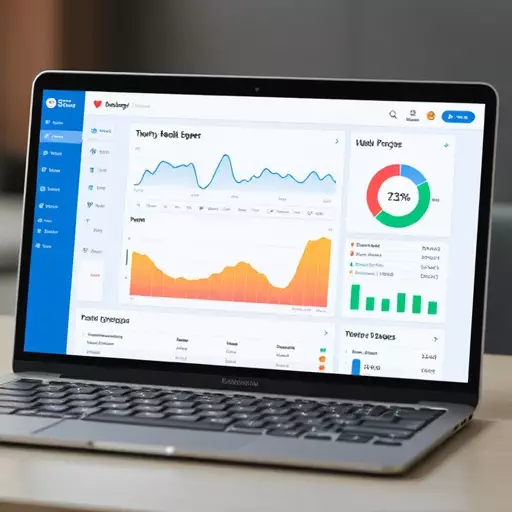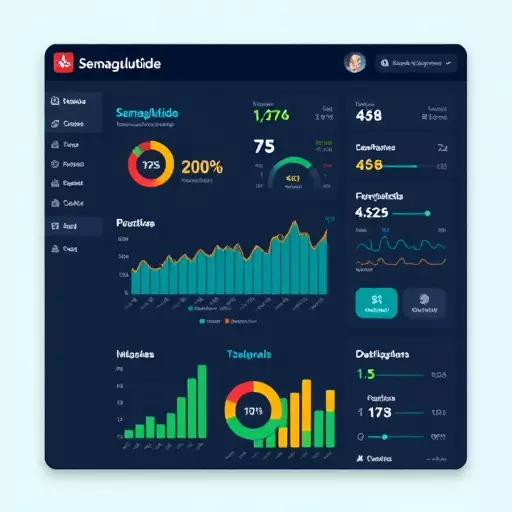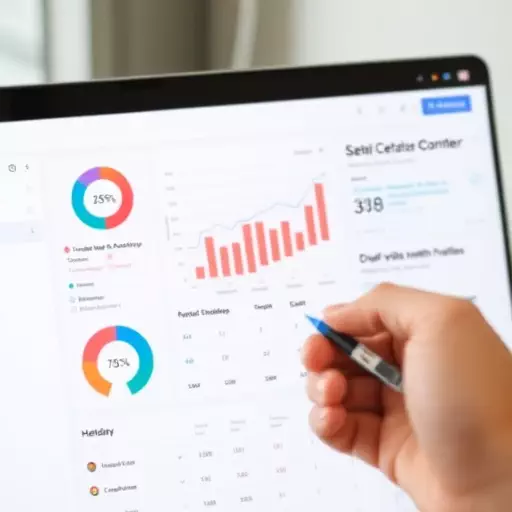Semaglutide, a revolutionary medication available in Warren-Troy-Farmington Hills, transforms diabetes and obesity management. By mimicking natural hunger hormones, it helps individuals feel fuller, eat fewer calories, and lose weight. Effective semaglutide care incorporates daily health logging and semaglutide-specific progress dashboards, empowering patients and healthcare providers to track BMI trends, make informed adjustments, and achieve better therapy outcomes. These digital tools simplify tracking meal intake, physical activity, and weight changes, enabling individuals to assess treatment effectiveness during regular check-ins.
In the world of healthcare, Semaglutide has emerged as a game-changer for managing type 2 diabetes. For those living in Warren-Troy-Farmington Hills and beyond, long-term BMI tracking tools are essential components of Semaglutide care. This article explores the significance of daily health logging for Semaglutide users, providing insights into how this practice enhances treatment effectiveness. Additionally, we delve into the benefits of leveraging Semaglutide-specific progress dashboards, offering a comprehensive guide for optimal patient outcomes in the vibrant, bustling community of Farmington Hills.
- Understanding Semaglutide and Long-term BMI Tracking
- Daily Health Logging: A Crucial Component for Semaglutide Users
- Leveraging Semaglutide-Specific Progress Dashboards
Understanding Semaglutide and Long-term BMI Tracking

Semaglutide, a cutting-edge medication in the world of diabetes management, has gained significant attention for its potential to aid weight loss alongside blood sugar regulation. In the context of healthcare in Warren-Troy-Farmington Hills and beyond, semaglutide offers a novel approach to treating type 2 diabetes and obesity. By mimicking a natural hormone that regulates hunger and satiety, it promotes feelings of fullness, leading to reduced calorie intake and subsequent weight loss.
Long-term BMI tracking is an essential component of successful semaglutide care. Daily health logging for users allows for the continuous monitoring of body mass index (BMI) fluctuations. Semaglutide-specific progress dashboards can be incredibly valuable tools in this process, providing visual representations of weight changes over time. These digital solutions empower patients and healthcare providers alike by enabling timely interventions and adjustments to treatment plans, ultimately enhancing the overall effectiveness of semaglutide therapy.
Daily Health Logging: A Crucial Component for Semaglutide Users

For those utilizing Semaglutide in Warren-Troy-Farmington Hills, daily health logging is a crucial component to their care regimen. This involves meticulously recording key metrics such as food intake, physical activity levels, and weight changes on a regular basis. By implementing these practices, semaglutide users can gain valuable insights into the effectiveness of their treatment and make informed adjustments to their lifestyle.
Semaglutide-specific progress dashboards offer a streamlined way for patients to track these daily health logs. These digital tools facilitate easy data visualization, allowing users to monitor trends in their BMI over time. With such detailed tracking mechanisms, semaglutide users can collaborate more effectively with their healthcare providers, ensuring optimal outcomes from their treatment journey.
Leveraging Semaglutide-Specific Progress Dashboards

Semaglutide, a groundbreaking medication in Warren-Troy-Farmington Hills and beyond, offers significant benefits for those managing their weight and health. To maximize its impact, leveraging semaglutide-specific progress dashboards is paramount. These tools are designed to help patients and healthcare providers track key metrics related to semaglutide treatment, including daily health logging. By recording and analyzing data such as meal intake, physical activity levels, and weight changes, users can gain valuable insights into their progress and make informed adjustments to their care plans.
Semaglutide-specific dashboards streamline the daily health logging process, making it easier for patients to stay on track. They provide a centralized platform where individuals can input their dietary and exercise routines, as well as monitor trends in their BMI over time. This real-time visibility empowers users to promptly identify patterns, assess the effectiveness of their treatment, and communicate effectively with healthcare providers during regular check-ins.
